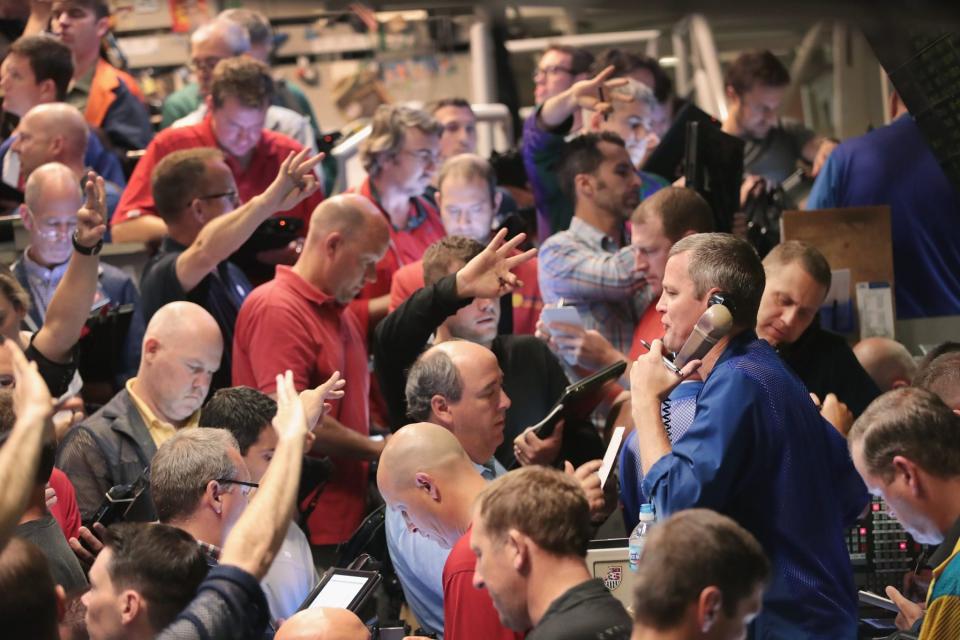Nvidia is carrying the S&P 500 like no company since possibly IBM 4 decades ago, expert says: ‘It’s unheard of’

The astounding performance of a few tech companies is masking an otherwise mediocre stock market. The S&P 500 Index broke its 31st record of the year on Tuesday, closing at 5,487.03, according to Bloomberg data. While the index is up over 15% this year, that growth is by no means evenly shared.
Looking at year-to-date data through June 18, shares of Nvidia, Microsoft, Apple, Meta, Google, Amazon, and Broadcom have on average soared by 25.3%, while the remaining 493 companies have grown by just 2.7%. In June alone, the "Magnificent Seven" (the previously cited list, swapping in Broadcom for Tesla) are on average up 7.5%, but the rest of the index is down -0.5%, according to Howard Silverblatt, senior index analyst at S&P. On Tuesday, Nvidia, Microsoft, and Apple stock equated to half of the index’s total returns, he adds.
This unprecedented level of concentration is leaving some portfolio managers nervous. “They're biting their nails. Because the bottom line is, if you are not in this, you're not getting your return,” Silverblatt told Fortune.
https://datawrapper.dwcdn.net/B7gnW/4/
That’s because the version of the index that makes no distinction between the market cap of the companies has grown just 4% this year. Moreover, the share of the S&P 500 stocks trading above their 50-day moving averages is declining, down to 47% on Monday from 92% in January, according to Bloomberg.
The darling of tech darlings remains Nvidia, which briefly became the world’s most valuable company this week. With a market capitalization of about $3.1 trillion as of Friday morning, its stock is up over 170% year to date. At the peak of its frenzy on Tuesday, it was more valuable than the entire stock market of France or that of the U.K., or the whole oil and gas industry. That same day, one-third of the index’s returns were from the company alone. “It’s unheard of,” says Silverblatt. “The closest we can get to that level of impact [on the index] from one company is IBM in the 1980s, when that new product, PCs, were coming out."
So, how long can this growth last? Silverblatt says he wouldn’t bet his money on Nvidia generating these types of returns every year. For him, it’s not a question of if it loses its chip monopoly, it's a matter of when. But, ultimately, whoever eventually usurps Nvidia is likely to be another tech company that needs chips: “It's going to stay in the family, shall we say.”
Looking more closely at IBM, in the early 1980s, it was topping the index and towering over competitors at a two-to-one ratio, according to the New York Times. By 1985, its portion of the index was 6.4%—about equal to Apple’s today. The company began to lose its monopoly over personal computers once Apple announced the Macintosh in 1984. Today, IBM ranks about 51st on the index, and represents just 0.35% of the weight. Its market cap is 5% that of Apple’s.
Adam Kobeissi, editor-in-chief of The Kobeissi Letter, told Fortune all waves of internet innovation “typically come with a bubble,” and he anticipates there will be a pullback period in which weaker players are “weeded out.” Nonetheless, he predicts that the large-scale tech stocks are to remain the leaders of the market, and doesn't envision anyone dethroning Nvidia in the near term.
So, in the near term, is this level of disproportionality concerning?
Well, the top three stocks alone can move the market significantly. "Concentration is a risky situation” and that makes “everybody nervous,” adds Silverblatt. If, for example, Nvidia were to lose the gains it has made this year overnight, the S&P 500 would have to come down approximately 4.5%, according to his calculations. “The market's going to have to absorb that.”
This story was originally featured on Fortune.com

 Yahoo Finance
Yahoo Finance 